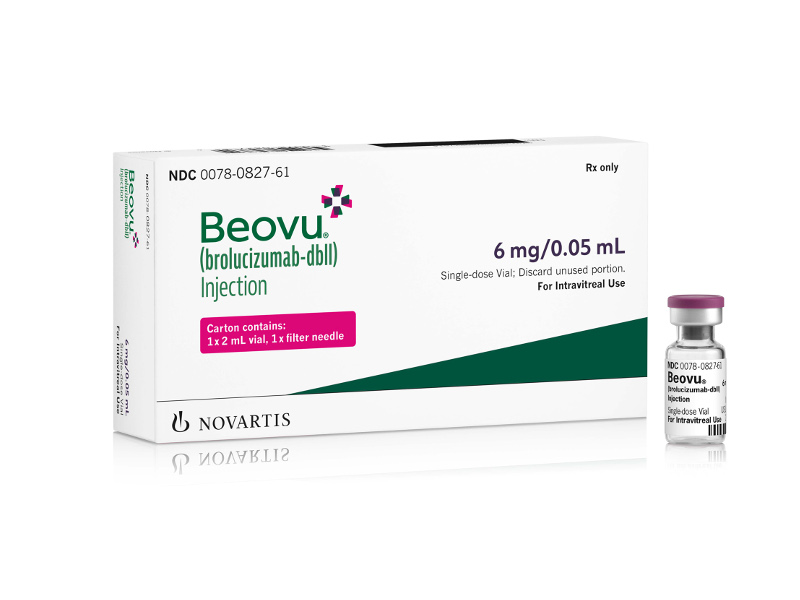 |
Patients treated with brolucizumab who have ocular inflammation as an adverse effect may have anti-drug antibodies. Photo: Novartis. Click image to enlarge. |
Since brolucizumab’s postmarket trials reported worrisome numbers of occlusive retinal vasculitis and intraocular inflammation, many clinicians approach this anti-VEGF option with hesitancy or avoid using it altogether in their patients. Research into the role of anti-drug antibodies (ADAs) to brolucizumab was recently published, and the authors of the paper say the prevalence of ADAs to brolucizumab in the typical ophthalmic patient population is significant.
The researchers collected 192 serum samples and 54 vitreous samples from patients with various eye diseases, including nAMD, DR, RVO, cataract, glaucoma, dry eye and IOL dislocation. They examined the samples for ADAs to brolucizumab and ranibizumab using indirect enzyme-linked immunosorbent assay.
The researchers observed brolucizumab ADAs in patients with and without prior drug exposure. They noted that the frequency of “notable” and mean ADA signals in the serum were higher in brolucizumab than ranibizumab. Additionally, the two patients who had severe intraocular inflammation and occlusive retinal vasculitis after receiving intravitreal brolucizumab had high levels of brolucizumab ADA serum levels. One of these patients had high brolucizumab ADAs in the vitreous as well. The researchers noted another patient developed moderate intraocular inflammation without retinal vasculitis with low serum levels of brolucizumab ADAs. The brolucizumab ADAs were more commonly found in serum than vitreous, but patients with DR tended to have higher levels in the vitreous.
“The fact that we observed anti-brolucizumab antibodies in patients who had never received brolucizumab demonstrates the presence of pre-existing antibodies,” the researchers wrote in their paper. “These cross-reactive antibodies may result from contact with microbial or other foreign antigens sharing similar structures to brolucizumab. Genetic predisposition for specific ADA occurrence can also be considered as human leukocyte antigen status is involved in the context of adaptive immune reactivity.”
“Taking previous observations and our data into consideration,” they continued, “anti-brolucizumab ADAs may represent a risk factor for intraocular inflammation and retinal occlusive vasculitis in patients treated with brolucizumab.”
Busch M, Pfeil JM, Dähmcke M, et al. Anti-drug antibodies to brolucizumab and ranibizumab in serum and vitreous of patients with ocular disease. Acta Ophthalmologica. February 28, 2022. [Epub ahead of print]. |

